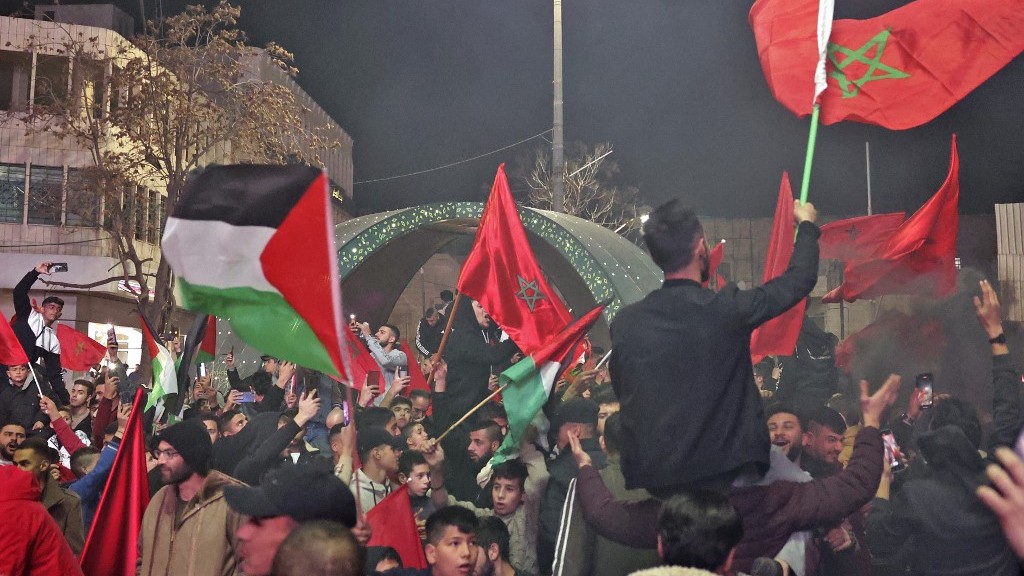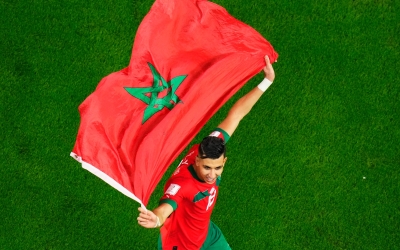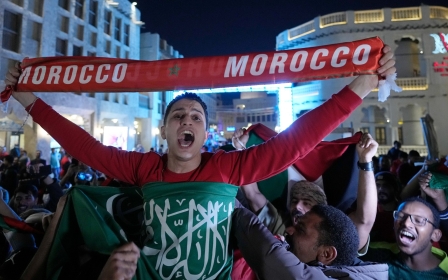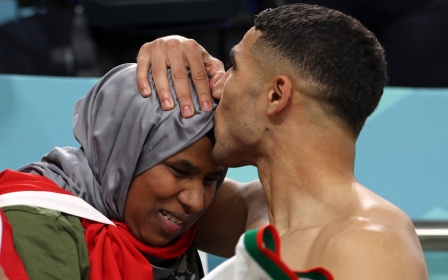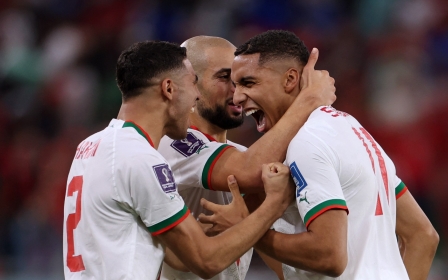Morocco: World Cup quest ends, but new dreams begin
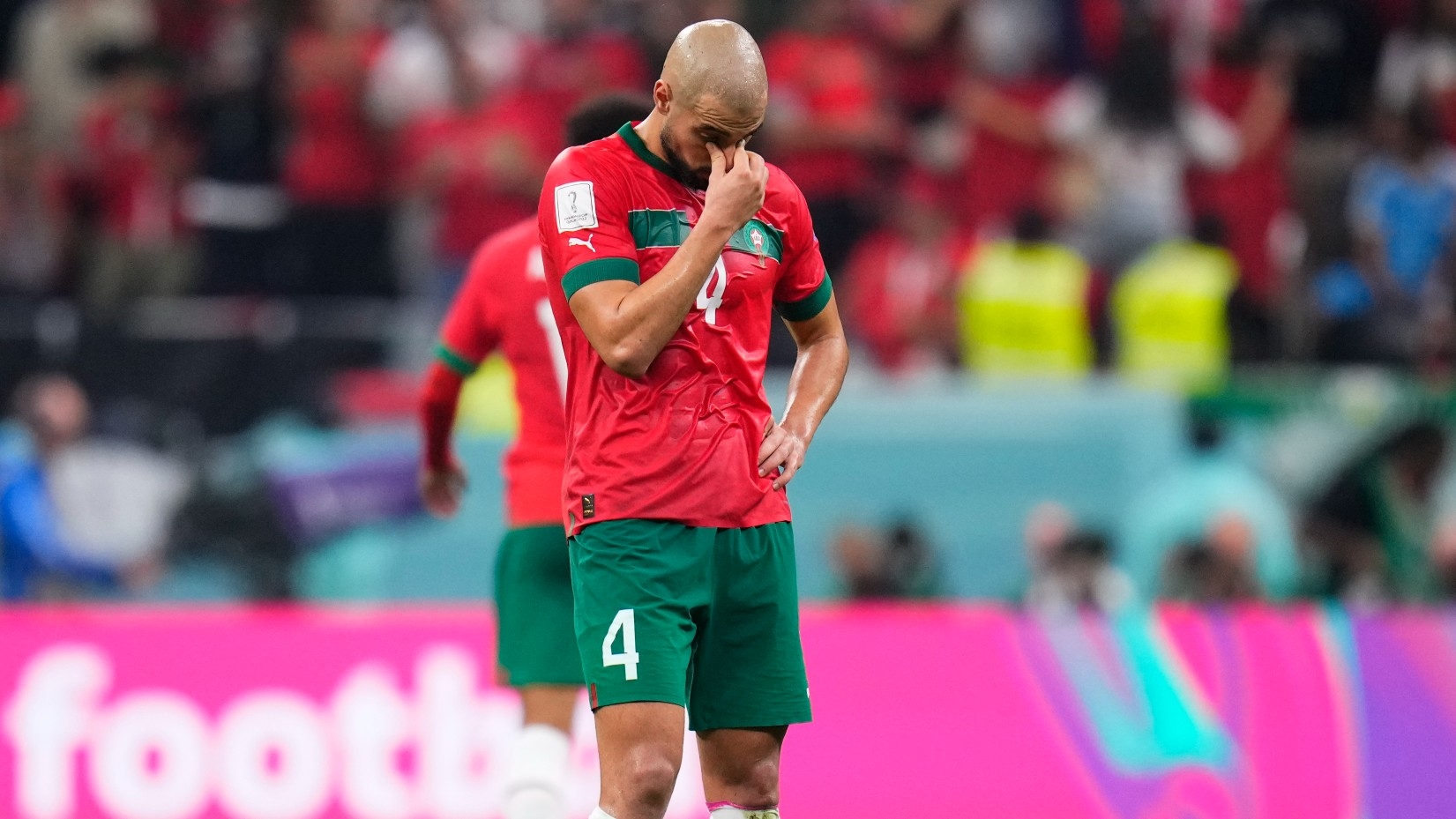
Morocco’s pursuit of improbable glory at the World Cup has come to an end at the hands of France. In a 2-0 defeat on Wednesday, Morocco gave a creditable performance and did not go down without a fight.
There is understandable disappointment that this team, which has gained so much support along the way and delighted its fans and neutrals alike, will not complete the dream and contest the final against Argentina on Sunday.
The level of ambition for sports teams from these regions has been permanently raised. Instead of just taking part, we can now dream of winning
There is certainly no shame in losing to the reigning world champions. Morocco’s heroic efforts to get this far were built on defensive power, with the team conceding only a single goal prior to the semi-final - and before the match, there were doubts about the fitness of key defensive players. Impressive defensive midfielder Sofyan Amrabat revealed that since the round of 16 game against Spain, he has played through injury and with the aid of injections to cope with the pain.
Defenders Nayef Aguerd, Romain Saiss and Noussair Mazraoui all had fitness concerns prior to the semi-final. In the end, Saiss and Mazraoui ended up starting the match - a testament to the physical sacrifices the Moroccans were willing to make for their country.
Aguerd’s absence and the physical condition of players such as Saiss, who had to come off after 20 minutes, shows how fine the margins are at this level. On another day and with a fully fit team, the outcome could have been different.
New MEE newsletter: Jerusalem Dispatch
Sign up to get the latest insights and analysis on Israel-Palestine, alongside Turkey Unpacked and other MEE newsletters
But once the raw emotions of this defeat have cleared, the overriding feeling will be a sense of pride. The Atlas Lions must now pick themselves up to compete in the third-place match against Croatia on Saturday. But regardless of that outcome, the North African nation has already made history with the best-placed finish of any African or Arab nation in the history of the World Cup.
Enduring memories
From a personal perspective, the enduring memories that this talented Moroccan team have left will be long-lasting: the victories against Belgium, Canada, Spain and Portugal; the joyous dancing on the pitch with their families; players prostrating in prayer; and Palestine flags raised with pride. The team inspired their fans, who brought colour and noise to stadia across Qatar, and roused millions of people around the world to celebrate their wins.
Only time will tell exactly to what extent this achievement will inspire future change and progress in the sport for Morocco and across the wider region. But the early indications are that it will leave a positive legacy in Africa and the Middle East, as the level of ambition for sports teams from these regions has been permanently raised. Instead of just taking part, we can now dream of winning.
Morocco has shown the way and made the strongest possible case for investment in talent development - both players and coaches - and infrastructure.
Much has been made of Morocco having the highest proportion of players born outside the country, at 14 out of the 26-player squad. This followed a concerted effort by the Moroccan football federation since 2014 to attract emerging talents from the approximately four-million-strong diaspora community.
Sometimes, the emotional or familial pull of their parents’ country was enough; on other occasions, incentives were offered to attract players from the diaspora. For example, the Moroccan football federation reportedly covered the costs of Dutch-Moroccan player Mohamed Ihattaren’s father’s funeral.
One of the stars of this diaspora cohort, Hakim Ziyech, was disparaged and criticised for his decision to represent Morocco over his country of birth, the Netherlands. “How stupid can you be to choose Morocco if you are in contention for the Dutch national team?” Dutch football legend and former coach Marco van Basten asked in 2016.
Given that Ziyech represented Morocco at the 2018 World Cup, for which the Dutch did not qualify, and then inspired his side to the semi-finals this time around while the Netherlands were knocked out in the quarter-finals, it’s fair to say that he has had the last laugh.
Investing in football
The assumption that has always been made is that representing a European nation provides a better platform to compete at the highest level internationally. Yet, one of the lasting legacies of Morocco’s success will surely be to inspire more emerging talents of Arab and African descent around the world to represent their country of origin.
These players, often educated at the best football academies in the world from an early age, have an uplifting impact on the overall quality of their national teams, indirectly benefiting compatriots playing in domestic leagues.
Qatar 2022 has also been remarkable for the fact that all five African countries competing were managed by African coaches, reflecting the belated professionalisation of coaching across the continent.
Morocco’s coach, Walid Regragui, has shown that given the same opportunities as European teams, they can compete tactically against the world’s best sides on the biggest of stages. One can only hope that other football federations across Africa and the Middle East take note of Regragui’s success and follow this shining example.
Investment in infrastructure at home has also been key to Morocco’s success. In 2007, work began on the £12m ($15m) King Mohammed VI Football Academy, a state-of-the-art complex featuring eight Fifa-standard pitches and a climate-controlled indoor pitch, with the goal of developing young Moroccan footballers. Some of the biggest stars of this tournament are graduates of the academy, including Youssef En-Nesyri, Azzedine Ounahi and Nayef Akrad.
The academy is part of the successful blueprint that has propelled this generation of Moroccan footballers. It is fair to assume that football associations around Africa and the Middle East will be under increasing pressure to demonstrate how their resources can be put towards similar levels of planning and investment in facilities.
The journey is not over yet, and many Arabs, Africans and Muslims will continue to cheer for Morocco against Croatia on Saturday. But the pride and the memories will be carried for far longer - and the tales of this team and what they stood for will be recounted to future generations.
The views expressed in this article belong to the author and do not necessarily reflect the editorial policy of Middle East Eye.
Middle East Eye delivers independent and unrivalled coverage and analysis of the Middle East, North Africa and beyond. To learn more about republishing this content and the associated fees, please fill out this form. More about MEE can be found here.


